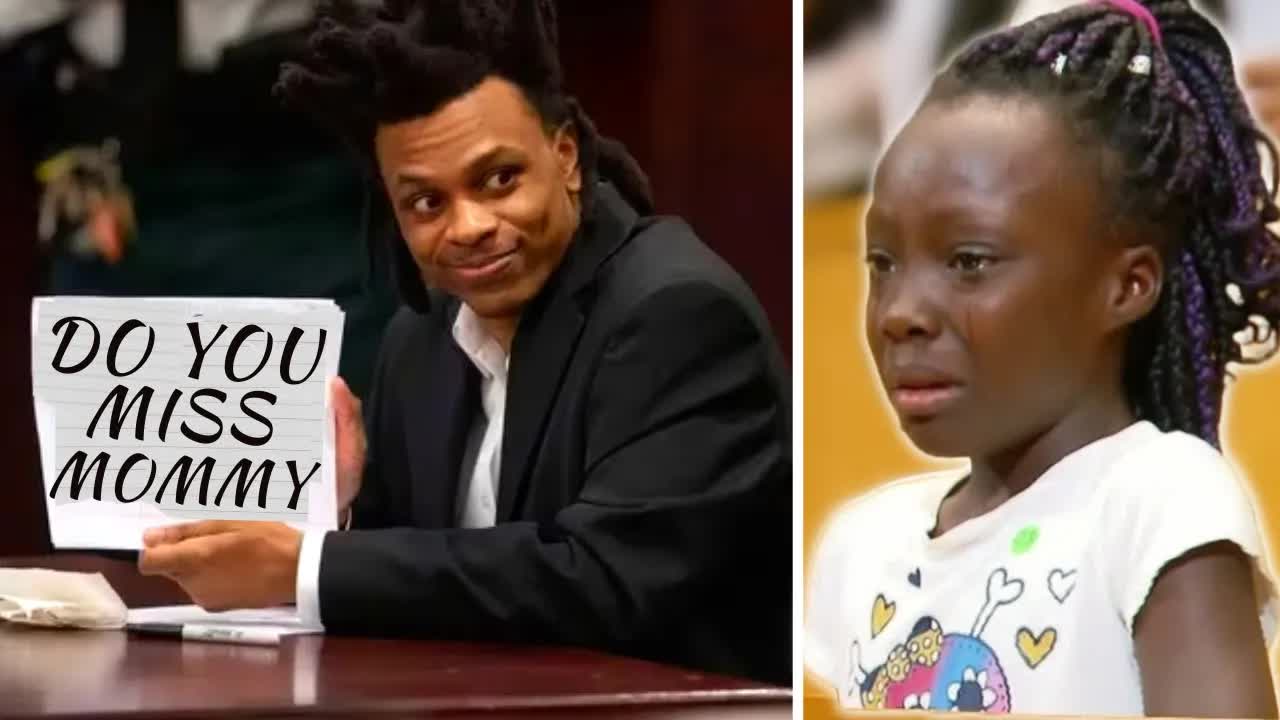In a chilling series of court cases, several defendants displayed shocking levels of disrespect and a complete lack of remorse for their heinous crimes.
These trials not only revealed the dark sides of human nature but also left judges and juries grappling with disbelief over the actions of these individuals.
One of the most notorious cases involved Jeremy Christian, who was arrested for the brutal murders of two men on a MAX light rail train in Portland, Oregon, back in May 2017.
Christian, a self-proclaimed white nationalist, stabbed to death 53-year-old Ricky John Best and 23-year-old Taliesin Mirdon Namkai Mecha, while also injuring 21-year-old Micah Fletcher, who survived the attack.
The incident began when Christian unleashed a torrent of racist and anti-Muslim slurs at two terrified teenagers, prompting other passengers to intervene.
As tensions escalated, Christian brandished a knife, ultimately leading to the tragic stabbings.
Following a brief escape from the scene, he was apprehended by police, where he infamously boasted about his actions.
This shocking display of arrogance continued during his trial, where he threatened the family of one victim and showed no signs of remorse.
Ultimately, Christian received two life sentences plus an additional 25 years for related charges, leaving many wondering how someone could be so cold-hearted.
The courtroom drama didn’t end there.
In Polk County, Randall Moore faced trial for the murder of his ex-wife, Therese Ann Marie Lynch.
In a harrowing 2011 case, Moore kidnapped Lynch after she filed a protective order against him, leading to a tragic hostage situation that ended with her death.
When Lynch’s mother delivered a victim impact statement, Moore interrupted, hurling insults and displaying an utter lack of empathy.
Judge Joel Novak condemned Moore’s behavior, stating he would impose the harshest penalties possible, resulting in three life sentences for Moore.
Meanwhile, Camille Gamette’s case took a different turn.
Convicted for the murder of her boyfriend, Marcel Hill, Gamette claimed self-defense after inflicting multiple stab wounds during a violent confrontation in May 2018.
Despite evidence showing she had attacked Hill with a frying pan and stabbed him repeatedly, she maintained her innocence, blaming her portrayal in court as largely fabricated.
Her dismissive attitude, especially during a victim impact statement from Hill’s family, drew ire from the judge, who ultimately sentenced her to life without parole.
Keith Allen Ferguson’s story echoed similar themes of violence and indifference.
In November 2014, Ferguson killed his wife Tiffany during a heated argument about their impending divorce, all while their children watched.
He later shot Tiffany’s father and held a woman hostage before surrendering to police.
Throughout the trial, Ferguson’s nonchalant demeanor raised eyebrows, leading to a life sentence without the possibility of parole.
In perhaps one of the most disturbing cases, Ronnie O’Neal III faced justice for the double murder of his daughter, Ronnevea, and girlfriend, Kenyatta Barron, in March 2018.
O’Neal not only committed these horrific acts but also attempted to burn down their home afterward.
During his trial, he chose to represent himself and even cross-examined his own son, who survived the attack.
His refusal to accept responsibility, coupled with bizarre claims of self-defense, culminated in a guilty verdict and three life sentences.
These cases illustrate a troubling trend: a complete disregard for human life and an unsettling lack of accountability.
They serve as sobering reminders of the darker aspects of humanity that surface in the wake of tragedy.
Each defendant’s story, marked by violence and insensitivity, leaves a lasting impact on the victims’ families and the communities they once called home.
As society grapples with these disturbing narratives, the legal system continues to wrestle with the consequences of such actions.
The sentences handed down reflect not just a response to the individual crimes, but a broader societal condemnation of violence and a call for justice for those who can no longer speak for themselves.
These stories remind us of the importance of vigilance in protecting the vulnerable and ensuring that justice is served, even when it seems elusive.
The echoes of these courtroom dramas will linger, challenging us to reflect on our values and the kind of world we wish to create.































